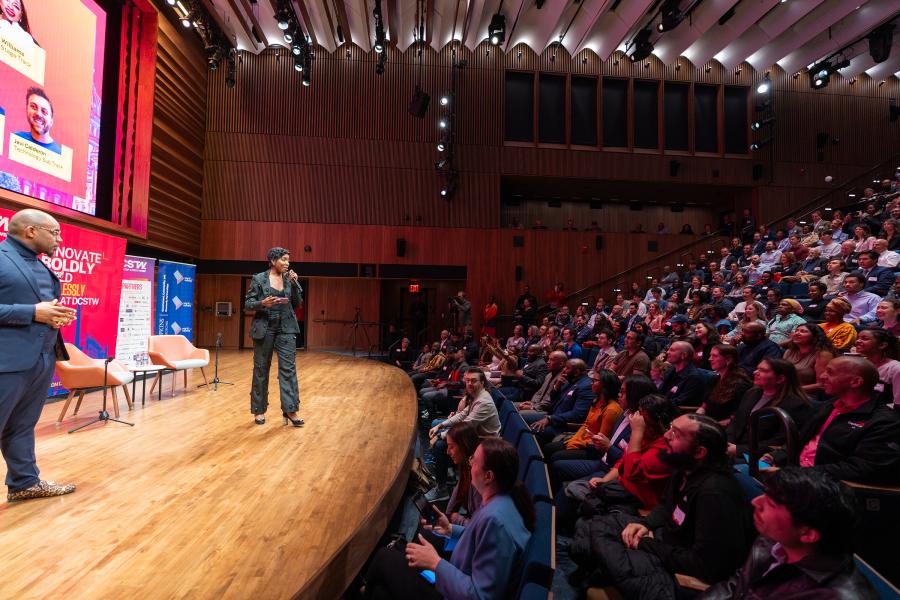While most of the country associates Washington, D.C., with political power, local entrepreneurs recognize another force driving the nation's capital: its innovation ecosystem.
More than 300 founders, investors, and entrepreneurs gathered at the Johns Hopkins University Bloomberg Center on Oct. 21 to kick off the 10th-annual D.C. Startup & Tech Week, discussing how the district's strong blend of sectors supports startups and what the next wave of innovation will bring.
"We've got all the primordial soup to continue to make the American economy the most important, most powerful in the world," said Ted Leonsis, CEO of Monumental Sports & Entertainment, in an interview with Maryland Public Television. "We all think of ourselves as being in this D.C. overlay, which is federal government and then our own communities, but really what drives it is our universities. We have the best universities with Johns Hopkins, with Georgetown, with [the George Washington University], with the University of Virginia—I mean, the list goes on and on."
These pillars of D.C.'s innovation ecosystem helped pave the way for different innovations and industries to grow, from the internet to the sports gaming industry, said Leonsis, who was a former executive at AOL.
"Our belief was always the technology and policy and regulatory environment that would enable new industries would start here," he said.
While policy can enable economic growth, Paul Atkins, chairman of the U.S. Securities and Exchange Commission, said policy must also keep up with the pace of innovation.
"In a really changing world, nothing ever is finalized, and so you have to be constantly attuned to what needs tweaking and how to accommodate new ideas, new ways of doing things," Atkins said.
A theme that emerged among the speakers was that multiple sectors—from the government agencies funding academic research to the entrepreneurs bringing research to market—must work together on bold ideas to boost the economy and our national security.
"The question is not what technology, but what capabilities that are built from those technologies matter the most," said Justin Fanelli, chief technology officer for the U.S. Department of the Navy and adjunct assistant professor at the Georgetown University Center for Security Studies. Key to that, he said, is stronger public-private partnerships, which should emulate the collaboration that has enabled the growth of the commercial space industry.
National security was a key focus on the second day of the conference. Johns Hopkins Technology Ventures co-hosted an evening of lightning talks at the Hopkins Bloomberg Center, where innovators, scientists, and entrepreneurs shared the next-generation technologies they're developing to address critical national security challenges.
"Our entire mission is how do we take these great ideas and innovations that are being incubated inside a university setting and get them to market, get them to impact people's lives," said Myra Norton, head of the acceleration team at Johns Hopkins Technology Ventures, in an interview with Maryland Public Television.
Next, the Hopkins Bloomberg Center will host the inaugural World Changing Ideas Summit in collaboration with Fast Company on Nov. 19, convening cross-sector leaders to create connections, spark big ideas, and move them into action.
Posted in Science+Technology








